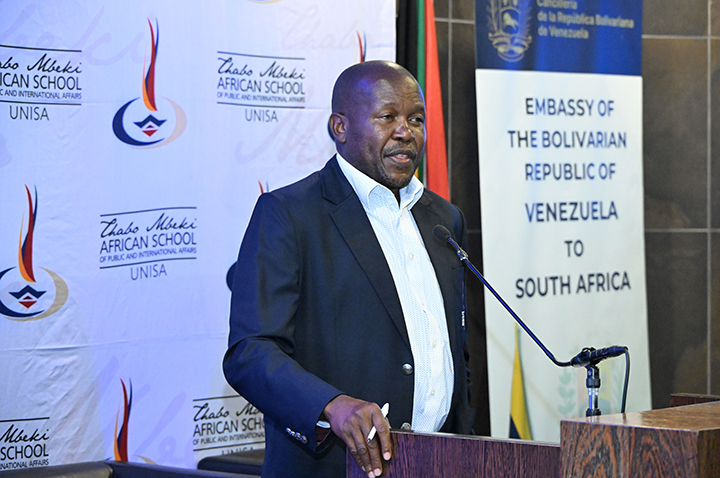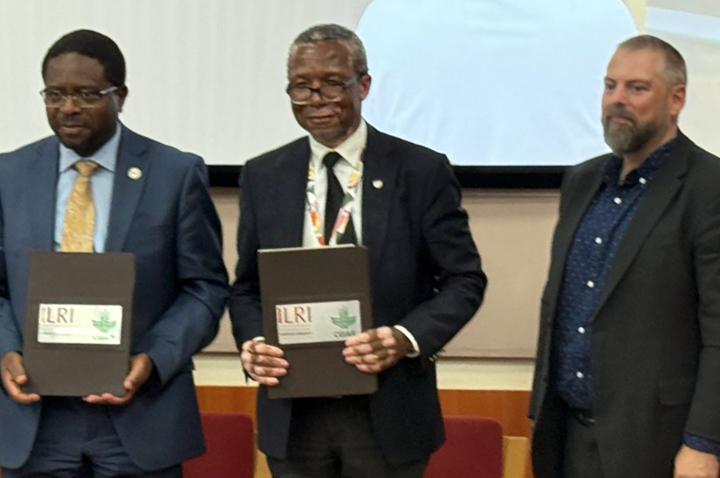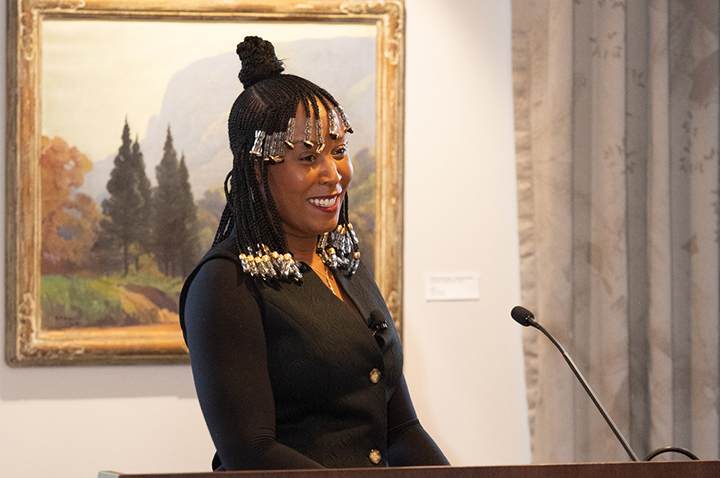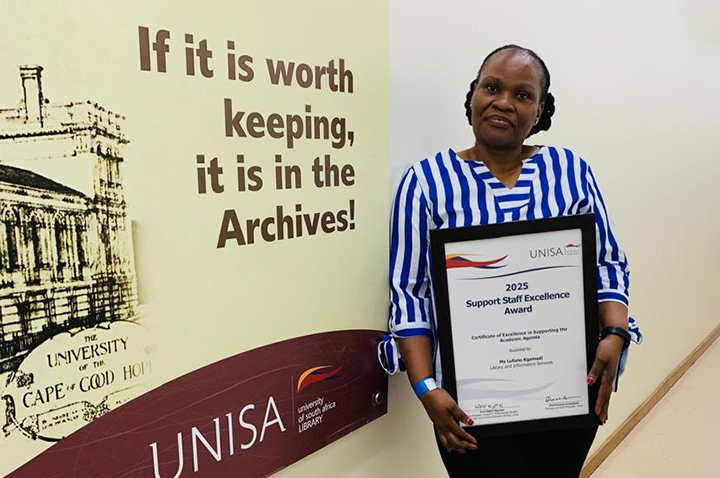
The African college of excellence in the social and human sciences
President Cyril Ramaphosa announced recently that the country is experiencing another pandemic in addition to Covid-19, and that is gender-based violence (GBV). His comments come in the wake of another series of violent attacks against women and children in the country. The president said that South Africa had seen no fewer than 21 women and children being murdered over the past few weeks.

Lefatshe Moagi-Venter (Lecturer: Political Sciences, College of Human Sciences) was interviewed online by Rivonia Naidu-Hoffmeester (Communications and Marketing Specialist, College of Human Sciences) following President Cyril Ramaphosa’s address to the nation on 17 June 2020.
Addressing the nation on 17 June 2020, the president said that he was "appalled" at the war being waged against women and children. He also listed some of the interventions government had put into place recently. He said that, since last December, 10 government-owned buildings had been handed over to the Department of Social Development to be converted into shelters for survivors of GBV. He said there were 13 regional courts that had been upgraded into sexual offences courts and 7 000 evidence-collection kits had been distributed to every police station in the country. There were also now more than 1 000 survivor-friendly rooms at police stations to support the work of law-enforcement agencies.
"Many police officers, prosecutors, magistrates and policymakers have undergone sensitivity and awareness training, and over 3 000 government employees, who work with children and mentally disabled persons, have been checked against the National Register of Sex Offenders… Legislative amendments have been prepared around, among other things, minimum sentencing in cases of gender-based violence, bail conditions for suspects and greater protection for women who are victims of intimate partner violence," he said.
According to organisations working on women’s rights issues, while GBV crimes are frequent in South Africa, the Covid-19 lockdown had been even more detrimental to the fight against GBV. Statistics released by People Opposing Women Abuse (POWA) and Rise Up Against Gender Based Violence, among others, have indicated that during the lockdown period, there had been 87 000 complaints made to police nationwide, 148 suspects charged with perpetrating GBV, and the number of calls reporting GBV incidents had increased drastically, with the possibility that these numbers were even higher due to fear of reporting.
Unisa Political Sciences lecturer, Lefatshe Moagi-Venter, says she is not surprised by such statistics, as she believes there is a lack of political commitment and urgency from government to address this matter. Moagi-Venter is a 2018 young South African influencer, Future Africa Awards 2015 alumna and member of the UN women directorate task team on Generation Equality steering committee, which falls under the Minister of Women, Youth and Persons with Disability in South Africa.
The GBV activist, who works greatly with the youth, chatted to the news team via Zoom about the GBV challenges that continue to manifest in South African society.
From my observation of GBV, which includes femicide, I find it unfortunate that our political leaders are not sufficiently willing to financially support GBV programmes. In December 2019, during the country’s 16 Days of Activism campaign, the government proposed an Emergency Funding Plan worth approximately R1.1 billion. This funding was agreed upon on 18 September 2019 at a joint parliament sitting. The idea was to have this emergency action plan; and then plan immediate interventions that were to be implemented over a six-month period during the 2019/20 financial year.
Even though the president has mentioned interventions in his recent speech, I am concerned with how far along this planning is, as I feel there is an urgent need that requires concerted, focused and results-oriented interventions at all levels of society. Another concern of mine of is that when NGOs and other social institutions that work with GBV and femicide programmes request funding, we hear statements from government officials such as "it’s a plan", "there is no money" or "the government is going to look for money". This often leaves those of us passionately working on the ground confused.
The Covid-19 pandemic has exposed the shallow politics and failure of how government responds to the crisis of GBV in our country. The effects are the lack of political commitment and initiatives from government, especially during this period that has heightened frustrations and emotions in a home. We need more shelters and safe houses that support individuals who experience GBV in their homes during this lockdown period, and these need to be fully functioning thereafter.
Currently, there are homes where jobs have been lost and incomes reduced. There are single-parent homes that are unable to financially support their families. Even though there was a child grant increase for beneficiaries, it is not enough, especially when facilities such as water, electricity, food and essential products need to be paid for. These factors pose a threat to mostly women in the affected households, many of them facing emotional and/or physical domestic abuse.
We are very reactionary as a country - we tend to act after things happen, yet evidence and history have taught us that we have a challenge with GBV. We should have planned for this when we announced lockdown. We should be addressing this at various levels in our society, from our curriculum, to men’s seminars in workspaces, to speaking to people and community leaders at grassroots level to help resolve this issue.
There is also a lack of information and poor distribution around awareness on these issues. For example, how many of us during this lockdown period knew that between 31 May and 7 June 2020 was Child Protection Week? Yet when the coronavirus pandemic happened, government were so prompt to issue leaflets and pamphlets telling the community to wash hands. As the president said, GBV is a pandemic too, so urgency, as we saw with Covid-19, is definitely needed. And it is needed all year round if we are to actually solve this challenge.
* Interview by Rivonia Naidu-Hoffmeester, Communications and Marketing Specialist, College of Human Sciences
Publish date: 2020-06-25 00:00:00.0
 Unisa seminar examines breach of the international legal framework
Unisa seminar examines breach of the international legal framework
 Unisa and ILRI sign landmark MoU to advance Africa's genomic leadership
Unisa and ILRI sign landmark MoU to advance Africa's genomic leadership
 AMT to strengthen global black hole imaging and advance African astrophysics
AMT to strengthen global black hole imaging and advance African astrophysics
 Unisan awarded Presidential Fellowship at American university
Unisan awarded Presidential Fellowship at American university
 Scholar-practitioner excellence recognised at Unisa
Scholar-practitioner excellence recognised at Unisa